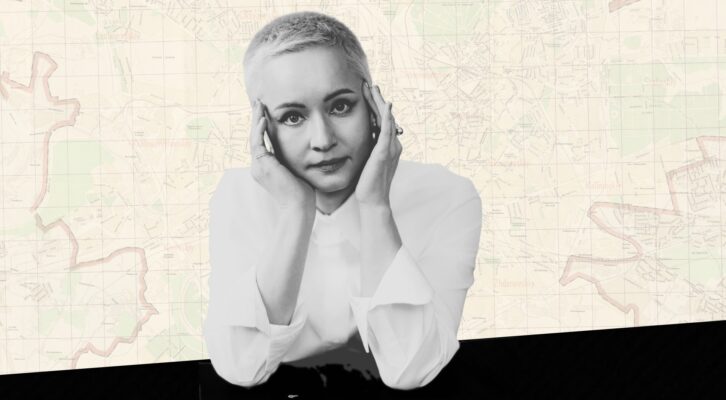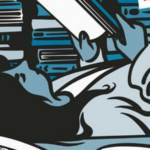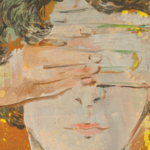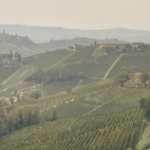I had answered a request in the summer of 2017 for “Italian-American extras” for Martin Scorsese’s Netflix production of The Irishman, a film based on the biography of Frank ‘The Irishman’ Sheeran’s I Heard You Paint Houses, written by Charles Brandt. My interest in the book and film centered on the accounts of Teamster president Jimmy Hoffa’s murder in 1975. I read the book after sending my picture and information to the agency. I wanted in.
Frank Sheeran had many jobs, most of them illegal. He wound up close to Hoffa; too close, for Jimmy’s sake. Sheeran claims to have murdered so many people he can’t remember. One he remembers well is Jimmy Hoffa in Michigan in 1975. But his statement contradicts what I’d been told by my father and uncle, and what our family lore still holds about Sal Briguglio, my godmother’s husband. Our version names ‘Uncle’ Sal and Tommy and Steve Andretta—all Hoboken natives, like me—as Hoffa’s murderers. While Sheeran says he pulled the trigger, he puts Sal at the scene.
I wanted to participate in The Irishman for varied reasons. I thought it would be fun, a personal meta-adventure. I didn’t apply without some angst, though. My connection to the Hoffa story’s characters isn’t a distant one. Not six degrees of separation for me; only one.
At the wardrobe fitting in mid-November, 2017, I told the hair stylist about my knowledge of the event. “My father was a Teamster truck driver,” I said. “He was in local 560.” The guy showed mild interest. On the film set a week later—an overused wedding/bar mitzvah hall in Queens, standing in for a 1961 Miami Beach hotel—I revealed more.
“Sal Briguglio was my godmother’s husband,” I said. “I met Tony Pro a few times,” name dropping Uncle Sal, the notorious business agent, along with the president of Teamster Local 560 in its law-breaking heyday. The production staff didn’t comment, their work too time-pressured.
We extras, some two hundred men and a dozen women, huddled in small groups after being dressed in distinctive Florida style: lots of pastel-colored rayon and nylon. My shiny green pants and yellow BanLon shirt were garish if nothing else. Big men in square shouldered jackets waited. I barely hit a hundred forty-five pounds at five feet eight, so I’m not quite the right fit for the stereotyped Teamster. I nonetheless felt a right to be there. I knew the real guys personally.
After a few hours we assembled in a mirrored and chandeliered meeting room for the shoot. Al Pacino, playing Jimmy Hoffa, walked on set to the group’s cheers. “I should take you guys with me everywhere,” he joked. Cheers erupted again. “I’m listening to the original speak from the beyond.” He pointed to earbuds. “Hoffa,” he laughed, “right in my head.” He took control of the crowd from that moment. Robert DeNiro as Sheeran clomped in platform shoes to the stage’s side and mounted an overturned wood box for added height. He offered a lone wave to the extras, a few smiles while at ease. During the takes he held his arms crossed, determinedly in character. “Bobby, Bobby, Bobby,” the extras cheered. DeNiro nodded, silent. Martin Scorsese, Pope-like and protected by a scrum of assistants, appeared after each scene. He grimaced when the extras chanted his name and sequestered in a kitchen for the shooting, watching via monitor. All stars went to him.
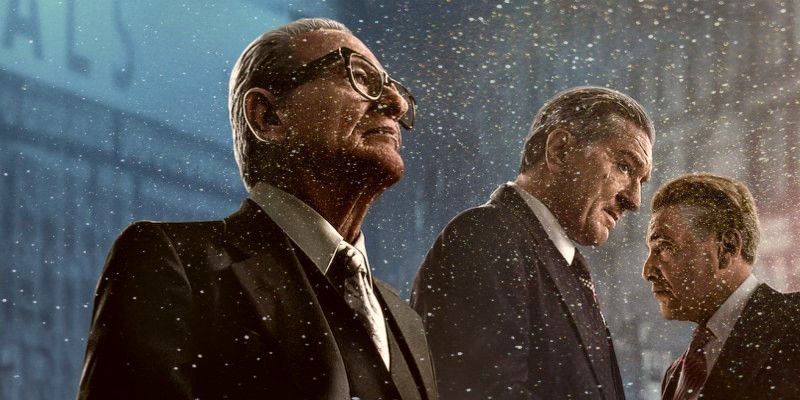
Pacino kibitzed with the group as he tried different versions of a speech for his (Hoffa’s) Teamster presidency run. He rallied the roomful of extras-cum-delegates, belittling Booby Kennedy, speaking highly of his VP Fitzsimmons who’d later turn into a fierce rival. Shot from numerous angles, we were told to keep up the energy by the Assistant Director. I’d slept poorly before meeting the bus in Manhattan at 4:30 a.m. and sunk into more yawning and further displacement as the day went on. I conflated my personal history with the film’s events, so my recollection and perception is suspect. I’m not unsure about the way I tossed emotionally.
* * *
Sal Briguglio has hovered around me and around my family’s lives for three generations. His presence came to a head in 1978, a few days before Easter when I sat down in front of the TV for my nightly dinner with the national news. I’d heated a piece of pastierre, our family’s seasonal specialty combining pasta, eggs, cheese and lard, baked for two hours. I’d made it myself for the first time, since I wouldn’t be going home to New Jersey for the holiday. The aroma spread through the chilly apartment I shared with two women in an old and large Victorian house in Rochester, NY, where I attended grad school, pursuing an MFA degree in photography. I settled in, food steaming on the TV tray. Rochester’s notoriously long winters are legend; that one had been brutal. Over a hundred twenty inches of snow, piles six feet high blocking driveways.
I watched the entire news broadcast. I’ve no recollection of anything reported except the last story. The anchor, John Chancellor, looked right at me and said something like, “Early this morning on the streets of New York’s Little Italy, Salvatore Briguglio was gunned down. Five bullets to his face and one to the chest killed the reputed member of the Genovese crime family. Mr. Briguglio was scheduled to testify before a federal inquiry along with Anthony “Tony Pro” Provenzano, former president of the corrupt Teamster local 560 in Union City, New Jersey. Harold Konigsberg, another Genovese associate, is the third witness. The government subpoenaed the three as part of an investigation into the 1961 murder of Anthony Castellito, a rival Teamster official. Briguglio’s killing is being called a warning from the crime syndicate to all who might be considering testimony in the on-going investigation into the disappearance of Jimmy Hoffa.” Chancellor looked up from his notes and signed off. It was my sister’s twentieth birthday. I called home immediately.
“Mom! What’s going on?”
“Oh. Mauro. What a surprise. How are you?”
“Mom! Uncle Sal! What happened? How’s Aunt Mildred?”
“Oh. Poor Mildred. Poor Sallie.” Mom paused. “He was always bad. Bad from way back.”
“But what happened? Did you talk to Aunt Mildred? Did she call?”
“Oh, no. She won’t.” A shorter pause followed. “So. How’s school?” Mom never could focus on one event for very long, especially the painful or confrontational. I pursued the conversation for a minute, but got little more. I didn’t talk to my father during the call. He’d grown up with Sal on Jefferson Street in Hoboken. They weren’t the closest friends, but close enough.
* * *
Sal Briguglio, thankfully, wasn’t related to my family. Mildred was mom’s best friend, but not blood, either. They met at church dances when young women in Jersey City and Hoboken. Mildred dated Sal; they subsequently introduced my parents.
A photograph survives from that time. The four sit at a table in New York’s Copacabana. The eight by ten inch image shows Sal’s puffed hair rising from his forehead. He looks at the camera, eyes wide, tongue curled, arm tight over Mildred. Drinks, a pack of Chesterfields. The band’s horn section lay in the soft-focused distance. My father smirks. Mom allows a reserved smile. Mildred, high cheekbones and black bobbed hair, smiles, brightly wide-eyed. Her tongue wags, caught in mid-word, illuminated by the camera’s flash. Her loud, nasal voice echoes in my memory.
His criminal life had already begun, but perhaps not killing. Nonetheless, he remained in the peripheral orbit of our lives until his own murder. Long after, too.Mildred served as maid of honor at my parents’ wedding in 1952. Two years later she Christened me. Sal appeared in one or two of our home movies, a few seconds filmed during a Christmas party. But when I think of him I remember the picture at the Copa. I read his wildness—insanity, really—into that photograph. I think also of my parents’ acceptance of his lifestyle, though I’m not sure how much deadly crime he’d been involved with by the early 1950’s. His criminal life had already begun, but perhaps not killing. Nonetheless, he remained in the peripheral orbit of our lives until his own murder. Long after, too.
I’ve retained Sal’s presence primarily through his absence. Everyone in my family speaks about and refers to him often. His non-attendance at events made him more pronounced, more mysterious. More powerful. Once I was older, I realized he was different from the other men. He was an extreme, awful version of the breed.
Aunt Mildred, on the other hand, attended most of our parties. Not only for me, but for my sister and brother. She came to birthdays, Communions and Confirmations, graduations, barbecues, even the annual Blue and Gold dinners for my Cub Scout Pack. She came without Sal, who had business, she’d say; some work for the Union that took him away. His son Jimmy, a year older than I, his daughter Christina a year older than my sister, sometimes came with Mildred. Jimmy acted wily and sly, a sharp tongue and mischievous behavior. Tina quietly occupied the background, almost forgotten, a toy gathering dust on a cabinet.
For a while in the 1960s the Briguglios lived on Palisade Avenue in Union City. Their two family house—with Sal’s mom on the top floor—looked over Hoboken and further to the Manhattan skyline. On one of our visits their large black and tan German shepherd paced inside the front yard. A six-foot high cyclone fence separated him from the outside. He barked feverishly, sprinted back and forth, ramming his side into the fence every few steps.
“Watch this.” Sal tossed three raw hamburger patties onto the ground. The dog—Atlas?—swooped in and sucked up the meat in a few seconds. “He’s hungry all the time,” Sal laughed, standing away from the barking Atlas. Sal led us inside, keeping the dog at bay with his leg. “He won’t hurt you.” Sal gave Atlas a shove. I ran inside, fierce barks shooting through the house for the duration of our visit.
I’ve wrestled internally with Sal’s presence for many reasons. He’d been named by many—my father and uncle Joe included—as Hoffa’s killer. He allegedly killed others. But my father had hung around with him when they were younger. Dad knew Sal’s brother Gabe. He knew the Andrettas, too, all Hoboken boys, all named as conspirators or the actual killers of Jimmy Hoffa.
There lies some of my consternation. What feelings and thoughts occupied my father with this knowledge? Was he afraid? Concerned? Did he think Sal’s acts were OK, even somehow good? Or simply how things went, a necessary protection for the community? Where was my father in all this and where did it leave me? Did any of his pathological behavior, any of the lawlessness live in my father? Or me.
One night shortly after Sal’s death I asked my father if he’d ever had an offer to get involved with the mob.
“Of course,” he said.
“What’d they want you to do?”
“Drop a trailer.”
“Did you?”
“Hell no.”
“Why?”
“Why? You see what happened to Sallie?” My father went back to reading the paper. I asked him later if Sal really killed Hoffa. “Sure. Him and the Andrettas. Everybody knows it was the three of them. They were always crazy. Then they got guns.”
“How come they never got in trouble?”
“No one talked. They never found Hoffa. That was it. No proof.”
Years after my father’s death, I went out with Uncle Joe and asked him.
“Shit yeah, they did it. They were crazy fucks, Sallie and them. They killed him in Michigan and put his fucking body in a fucking car. Now Hoffa’s part of a Toyota.”
“ What do you mean?”
“They stuffed the fucking body in a barrel and drove to Jersey City. You know that wrecking place past Grand Avenue?”
“Sure.” I’d ridden my bike there often, on the way to Liberty State Park. My Karmann Ghia could’ve been disappeared there if I ever needed insurance money for easy cash. There were times I was tempted but thought better of it.
“Well.” Uncle Joe pushed his palms together. “Car gets crushed. Hoffa’s inside. The fucking thing gets shipped to Japan. Toyota buys the metal. A new fucking Jap car. Maybe he’s a Honda. Who the fuck knows.” Uncle Joe smiled as he related the story.
Of course these men are Italian-American and they were all part of the mob. My father and uncle and others spoke about them. I’d see them at Dad’s club—Jefferson Triangle Social and Athletic Club—on occasion. I spoke to them when I was a child sitting in the smoke-filled club, a storefront on Jefferson Street. From a worn leather chair and round wood table I’d listen to their weekend card games, their banter about women and sports, the bosses they despised, the demise of the neighborhood due to an influx of blacks and Puerto Ricans. Sal rarely came to the club, but he was a familiar, making his way from Jefferson into the bigger, badder world.
My immediate and extended family refer to Sallie, Tony Pro and the Andrettas with a kind of ardor, as if, yeah, we’re connected to these killers, these bad boys, these mental cases. It’s insanity they’re lauding. Maybe it’s dangerous to talk freely about their culpability—my wife certainly thinks so—but I admit, I know how my family feels when the story comes up.
When I first started telling people about the connection I have, about how I knew who really killed Hoffa, I had a sense of… what? Pride, boastfulness, secret knowledge? I felt as if I had the answer to a mystery of our time and could revel in some perverse claim to fame. My family seemed to have a similar feeling when they talked about the Hoffa murder and the fact that they knew, absolutely, that Sal Briguglio and the Andrettas were Hoffa’s killers. Our boys from Jefferson Street.
* * *
I’ve written a novel and Briguglio has become the bad guy in it. He arranges the ‘accidental’ death of the young narrator’s grandfather as well as arson on the family’s tenement home. My grandfather died in just such an accident. I didn’t write the novel, based on some incidents in my life, in such a manner for vengeance or because it is the truth—though it could be, I suppose. Everyone in my family believes my grandfather’s death was nothing more than an accident. But my analyst thinks I’ve unearthed some kind of truth. So does my wife, who is adamant I change all the names for fear of retribution. While I don’t have (much) concern about that happening, I do find myself uncomfortable with some of my reactions. I don’t want to glorify Sal, yet I can’t deny the feeling that I’m part of a special group who knew some very violent men and what they did. I feel it welling up in my chest when I write about the events; a sense of belonging, being part of the family, of being included. And that’s what I always wanted; to be included. It’s what my novel’s narrator wants as well – to find connected acceptance as he struggles to individuate. For years I resisted writing about Italian-American criminals and the stereotypes that are so common in the wider culture. The images plagued me. I did so in my novel because I couldn’t ignore that part of the story, finally admitting its importance. Perhaps it was good, too, to name a villain. Yet, my book isn’t about Sal or bad guys. It’s about a kid who doesn’t fit, who isn’t seen, who is trying to find a bigger life outside his ghetto. It’s mostly about how males treat each other in ways bad and good.
When I think about Sal Briguglio and how his story plays out in the book, I wonder what the characters and my memory are conspiring to constellate. I recognize that he was the extreme of what I grew up around. Most of my father’s relatives and friends were laborers and family men. Most didn’t finish high school. They went to the club to play Pinochle and bocce, to watch ball games on TV. They bowled on Wednesday nights, had a few beers. They played the numbers—especially my grandfather, who consulted his Black Cat Dream Book every morning to find the three digit number corresponding to his dream and then asked me to run his bets up to his bookie, Pop Murray. They bought and sold swag radios or clothing or a camera that happened to fall off the truck every now and then. But mostly they were decent family men, not big drinkers, not too crazy. Except Sallie. He was more than street-crazy. He was pathological. A dangerous man. You have to be insane to be a killer of that type. These weren’t unplanned crimes of passion. They were deliberate executions and beatings. The movies romanticize and make it clever, or poetic, sometimes righteous. It’s not. Have you ever been hit, or hit someone? It’s emotionally revolting, not to mention brutally painful. It unnerves—at least it should. That’s just a fist fight. Imagine these guys doing this—beating and killing—as a matter of course, as their job. It’s a horrible thought and one of the reasons why I despised the depiction of Italian-Americans in so many cultural offerings.
* * *
Another photograph, this in Sheeran’s book: Sal, right before he testified to the Feds and shortly before he was killed in Little Italy in 1978. He looks at loose ends, his world unraveling. No wonder Sal reputedly had a coke habit at the time of his murder—which incidentally Sheeran claims to have committed, too. Perhaps drug use was Sal’s humanity showing. He had to numb himself to what his life had become. I don’t say this to excuse, or find some reason and therefore redemption for the behavior. I just mean that it makes sense. Perhaps a part of him needed to dissociate from what he did.
Sal Briguglio lived a life rooted in an earlier era, when violence and abuse was one of the few ways to ensure safety. That kind of living is reprehensible. Yes. But still perversely celebrated.
* * *
I am of this culture and I have tried to differentiate and separate. I’ve struggled for as long as I can remember to understand what manhood means, given the models I first knew, and to find my way. In the face of male family members and my father’s friends I cringed. But to be honest, I loved most of them. Lots of therapy time, men’s group work and writing brought me to a place of reconciliation, allowing the conflict to coexist. I can love them while recognizing their shortcomings. I can recall fondly their loutish ways and long for their acceptance while knowing I don’t actually want or need to have much to do with them. The conflicts have plagued me, of course. The images of Sal, Tony Pro, Hoffa and the Andretta’s have plagued me, too. In fact my father and uncles and cousins and all the men from my childhood closely orbit my psyche and consciousness in both a dangerous and beneficent incarnation every moment.
* * *
In 1988 I got a call from an official at the National Endowment for the Arts. I’d been awarded a Photography Fellowship. I was thrilled. The NEA Fellowship was a great honor, very competitive and a nice chunk of cash for me, a relatively underemployed visual artist at the time. “We want to keep your slides,” the administrator who called said.
“Sure. But what for?”
“Oh, in case any Senators want to see the kind of art we’re funding.”
“Fine with me.” My work at the time was erotic and explicit; lots of nude self-portraits, the start of an attempt to understand my maleness.
A half-year or so after I got the grant a big to-do erupted about the NEA funding work by Robert Mapplethorpe and Andres Serrano, among others. Theirs were sexually explicit photos, too, viewed as offensive by certain religious and other groups. A few Senators—Alphonse D’Amato and Jesse Helms primarily—got wind of the artists’ work, taking them and the NEA to task, eventually seriously defunding this important government agency. Serrano and Mapplethorpe, however, achieved world fame. The NEA furor can’t be overlooked for its contribution to their notoriety. I often wondered what would’ve happened if my art had been similarly contextualized. I might be in a very different place—for better or worse. I wondered about my knowledge and relationship to Sal et al in the same manner. Would writing about these events and making it public change my life? Would my wife’s fears be realized? Would I achieve notoriety—and like it? I was afraid of revealing a secret, of breaking rank, of going my own way. Becoming an artist was one thing. Choosing to forge a new kind of life, so different than my family’s, became the only way I could go, I knew. But an artist’s life could easily be labeled and excused by my family as a little wacky, as unorthodox; no big deal. Writing and revealing these secrets, though, is a possible betrayal; more serious than acting differently than all the men I’d known.
I’ve chosen my way, for better or worse.
At the end of my grad program in Creative Writing, 2009, I told my MFA thesis advisor about my fears when I wanted to write about Sal and Hoffa.
“How do you spell that name?” My advisor Googled Briguglio and came up with multiple entries in seconds. “What’s to worry? It’s all over the Internet.” He smiled.
It’s a moot point now, with the upcoming release of “The Irishman.” All that’s at stake is my own reconciliation with myself and my family and with the behavior of men in the world.
* * *
On The Irishman set, down time was the norm. I was exhausted, in a somnolent state, my unconscious active, trying to escape the din of a few hundred men’s voices. From that tired fertile soup erupted the totality of my history: with my father and family, with Sal and the Teamsters, my wrestling with Italian-American imagery in popular culture, with my attempt to understand my manhood, the place of masculinity in my life – all that and more. The effects psychically gathering that day had one of its roots in 1961, the same year as the filming was set.
We were to hear Hoffa and Frank Fitzsimmons give an address to the rank and file. Home movies show me wearing a trench coat and fedora complete with feather, walking down the steps of the Capitol.I was in first grade, a month shy of seven years old. My father and I along with a chartered bus full of Teamsters from Local 560 went on a day trip to Washington D.C. We were to hear Hoffa and Frank Fitzsimmons give an address to the rank and file. Home movies show me wearing a trench coat and fedora complete with feather, walking down the steps of the Capitol. I slept through much of the speech in the marble-walled International Brotherhood of Teamsters building. Afterward, we walked the streets of D.C. Cherry blossom trees bloomed. My father led me around as if he knew the place.
Thinking about my father, years past his death, I recall the joy, the care he took that early spring day and others like it. He and I in matched fedoras, carousing around the majestic city, walking the streets. Him pointing to the impressive buildings. Like me, more than me, he carried the rough culture of his origin. But most times he tried to love, nothing more.
“Where’s the president, Dad?” I asked, sure we’d catch a glimpse of JFK merely because we were in town. He pointed out the White House, the Capitol, the Supreme Court. Those memories of my father remain potent, ones I hold precious. Other memories, less happy, circle and bounce in my psyche. All of them helped me find a way to a different life.
* * *
In the winter of 2017 Aunt Mildred died. At her funeral mass I sat in a back pew, away from the small clutch of family and friends. After the service her children Jimmy and Tina recognized me. I hadn’t seen them for some fifty years.
“Oh my God, Mauro. Wow. I kept looking at you. You haven’t changed.” Jimmy shook my hand. “You’ll come to lunch, right?” Of course. How could I refuse? Why would I?
I followed the line of cars to the cemetery, deep in a suburbia filled with trees and large houses, front yards as big as a city park. So distant from Jefferson Street, from Hoboken, where Sal and Mildred and my mother and father had lived, where I’d grown up. So far from the tenements we’d all sprung from. Sal murdered, my father stricken with illness and dead, Aunt Mildred absent from my life for decades. Just my mom remained, quietly making her way within old age.
The restaurant’s repast—predictable Italian dishes—ended with pastry and coffee. I noted the conversation between Jim, Tina, and their cousins. Tina, three years younger than me, spoke freely. She told me of her anxiety and its debilitating effect, keeping her from working much. She spoke about her therapy and medications and the tough years of adulthood. Tina lived with her mother and Jimmy for almost her entire life. I remember hearing she worked in the Teamster office for some time, and, lived in Atlanta for a year. She mentioned neither. Never married, no children. Yet her vitality presented through the happy tone of her voice. A life came about for her. Jimmy lived with his mother, too, until her death. He worked in insurance but never ventured far from his mother’s side. His girlfriend Susan sat next to me, offering an occasional word, a conversational question. They didn’t live together. “Why would I do that?” Jim laughed when I asked.
During lunch I listened to Jimmy hold forth on taxes, some politics, business. We barely saw each other in childhood except when our mothers met. We’d led very different lives, though we’re bound in utterly complex ways. No one spoke of his father at the repast, just a mention occurred in church of his predeceasing Mildred. No one mentioned the Teamsters. I wouldn’t, either, knowing the subject should remain unmentioned. Jimmy, I guessed, wouldn’t easily speak of his father. However, I noted his tone, the easy way he cursed, the only slightly veiled racism and ethnic disparagement, the overt misogyny. His words surprised me but didn’t shock. I’d grown up hearing this type of talk, simply the way men of a certain time and place – like his father and many others—spoke. One thing I recalled at the lunch, an idea striking me from a distant time: I heard my father say fuck only twice in my presence. Both times he apologized.
Jimmy nodded toward the waitress, her back to the table. “Look at that,” he said to a cousin. “You could go up behind her and slip it right in and she wouldn’t know a thing.” Jimmy laughed.
“I’m going, Jimmy,” I said a few minutes later. I said nothing about the comment, nothing about any of the other talk, about any onerous history that he and I shared through our fathers. Not only wasn’t it the right time, but there didn’t seem any way I could ever engage Jim in such a conversation. I didn’t know him well enough and the matter was too weighted to begin. I suspected he’d never open up regardless of how well I got to know him. I judged him as a man who’d never allow his guard to drop, who’d never allow for vulnerability. A harsh judgment, I suppose, but I believe it true based on all I’ve witnessed from the men of my youth and their ways. I wish I was wrong, but I don’t think I am. One other fact: I felt my own fear. Addressing the issue would put me in a vulnerable spot, one I wasn’t willing to occupy in such a situation.
Jimmy gave me his cell phone number at Susan’s urging before I left. I still have the torn piece of one of her checks on my desk, in a pile of things to tend. I’ve not yet called.
* * *
The Irishman filming went on and on. One guy sitting next to me said “Gotti used to live around the corner from me,” in awestruck tones, elbowing me in the ribs. “Isn’t this the greatest fucking day of your life? Huh? Isn’t it?” he asked later.
My sense of past and present conflated. I unmoored. Sitting with so many men dressed as my father’s pals had in their youth, dressed myself like my father, listening to the cursing, the gruff intonations and fangools, I felt as I had as a six-year-old. I was back in the Jefferson Triangle club in Hoboken with the men of my childhood. I was a ten year old, unsure of myself. I was a rebellious teen, then a twenty-something, trying my best to leave that world. I was mid-thirties at a family gathering, questioning whether or not my own masculine agency and strength existed. I was middle-aged, comparing myself to my forebears. Thankfully I wasn’t lost that day on the set as much as I’d been at other times in my life, but somehow placed back in that historical context—albeit fictitiously—gave me another chance to consider the world of my birth.
I felt my anger rise for the men and the culture they’d created. I felt my own impotence and fear. I felt my disdain and rage at their insensitivity, among so many other awful traits. I felt my desire to leave as well as my hope I could stay, to contemptuously reject them and still be fully accepted.
The day dragged. I couldn’t wait for its end. I vowed I’d never do any extra work again. What an absurd way to make a hundred fifty dollars. I was disgusted by the entire event and the people in it.
But a shift occurred rather suddenly when I spoke to a few of the guys. I saw they were endearing and were having a ball. They were hams, awestruck by the stars and the pseudo-mimicry of gangsters they could slip into. They weren’t thinking about their involvement much beyond having fun. Perhaps some of them were analyzing the experience as I did. I didn’t have any opportunity to learn that. However, I ultimately saw them as I’d been able to see my father and his pals. While I’d been quick to condemn male behavior—my own included—at various points in my life, I’d also been able to see and feel something different with perspective. The men from my childhood and those I was on set with were OK. They, too, were honest, working class guys, or professionals, trying their best to keep themselves and their family solvent and healthy. Of course the outliers like Sal Briguglio and his ilk existed, fouling the water. They were the exception. I will not condone them. But what do I know of the choices made or the situations extant that led Sal to such a violent life? He existed within a culture no longer operable or necessary. No. I won’t condone at all nor delude myself that these men—all men—are just fine. Behavior presents as it does for a reason. It’s more than complex. It’s the way a life goes. The life I’ve lived, filled with my own version of hard work in various arenas, is a consequence of what and where I’ve come from. I chose a different life, rejected the way of my family, though I wound up through the vagaries of being alive, as an amalgam of many factors. This is a better life for me, without doubt.
I left the filming exhausted. Maybe not the best fucking day, but a damn good one. I agreed to do a second shooting, a scene that depicted a meeting of Local 560 in a rowdy Hoboken restaurant hall. Tony Pro, played by an actor of moderate fame, presided. Guitarists and singers drank fake beer and smoked fake cigarettes. Many of the same extras showed up for the shoot. I did too, and had a blast.









